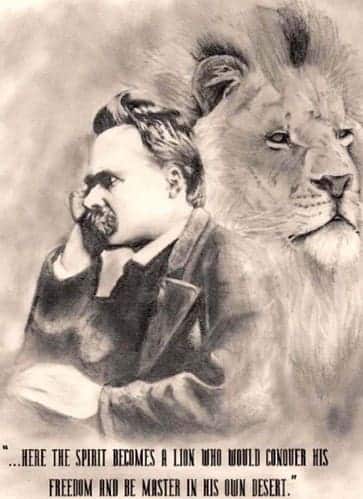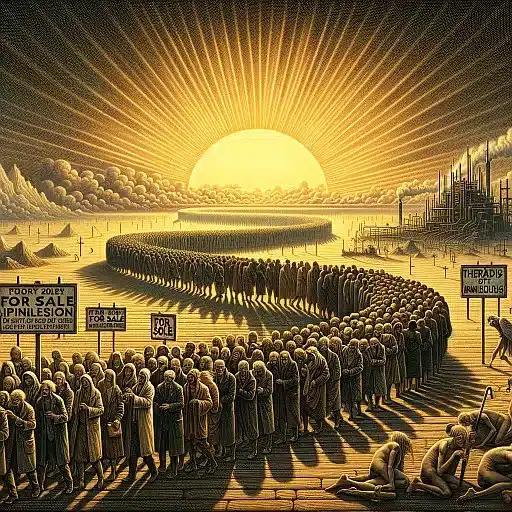To you who theorize so well about life,
I dedicate today’s raucous, silent sunshine.
The enterprise that sold out paradise in installments
has failed for millennia.
The miserable are left with only outrage
For not stealing their lamb mantle.
It will soon be dark,
and the exam begins.
At the end of the endless line,
the theorists, sickened by their waffling,
wait, like vampire outcasts,
the new, pathetic sunrise.
Deposited for legal protection with Patamu: certificate
Video
Invective against morality according to Nietzsche’s philosophy
Nietzsche’s (1844 – 1900) aversion to conventional morals stemmed from his belief that these inhibited the human potential for greatness and self-realization. In his philosophical works, Nietzsche vehemently criticized the prevailing moral framework of his time, seeing it as a repressive force that hindered the individual’s ability to cultivate his or her unique qualities and desires.
For Nietzsche, morality was an external imposition that sought to control and limit human behavior by imposing fixed values and norms on individuals. He argued that this system of morality led to the suppression of instincts and the cultivation of a herd mentality, in which individuals conformed to societal expectations rather than embracing their true selves.
Nietzsche believed that morality was deeply rooted in the Judeo-Christian tradition, which he criticized for emphasizing self-denial and devaluing human desires and pleasures. He saw it as a denial of life, preventing individuals from fully experiencing and embracing their existence.

In his works, Nietzsche advocated overcoming morality to break free from these social constraints. He considered the search for authenticity and self-actualization to be fundamental, encouraging individuals to break free from the confines of traditional moral values and instead explore their own unique set of values and beliefs.
For Nietzsche, overcoming morality was not an appeal to hedonism or moral relativism but rather a quest for personal autonomy and realizing one’s true potential. By challenging and transcending the limits imposed by social norms, individuals could walk their path to greatness and self-actualization.
In conclusion, Nietzsche’s disdain for conventional morality emerges from his belief in the individual’s potential to transcend societal expectations and embrace his authenticity. By advocating overcoming morality, he encouraged individuals to break free from the shackles of external moral structures, empowering them to forge their path to self-realization and personal fulfillment.
Understanding Nietzsche’s critique of morality provides valuable insights into embracing our unique values and desires, ultimately leading us to a more authentic and fulfilled existence.
If you like this poem, you can always donate to support my activity! One coffee is enough!


